Home>Furniture & Design>Bathroom Accessories>What Material Bathtub Is Best?
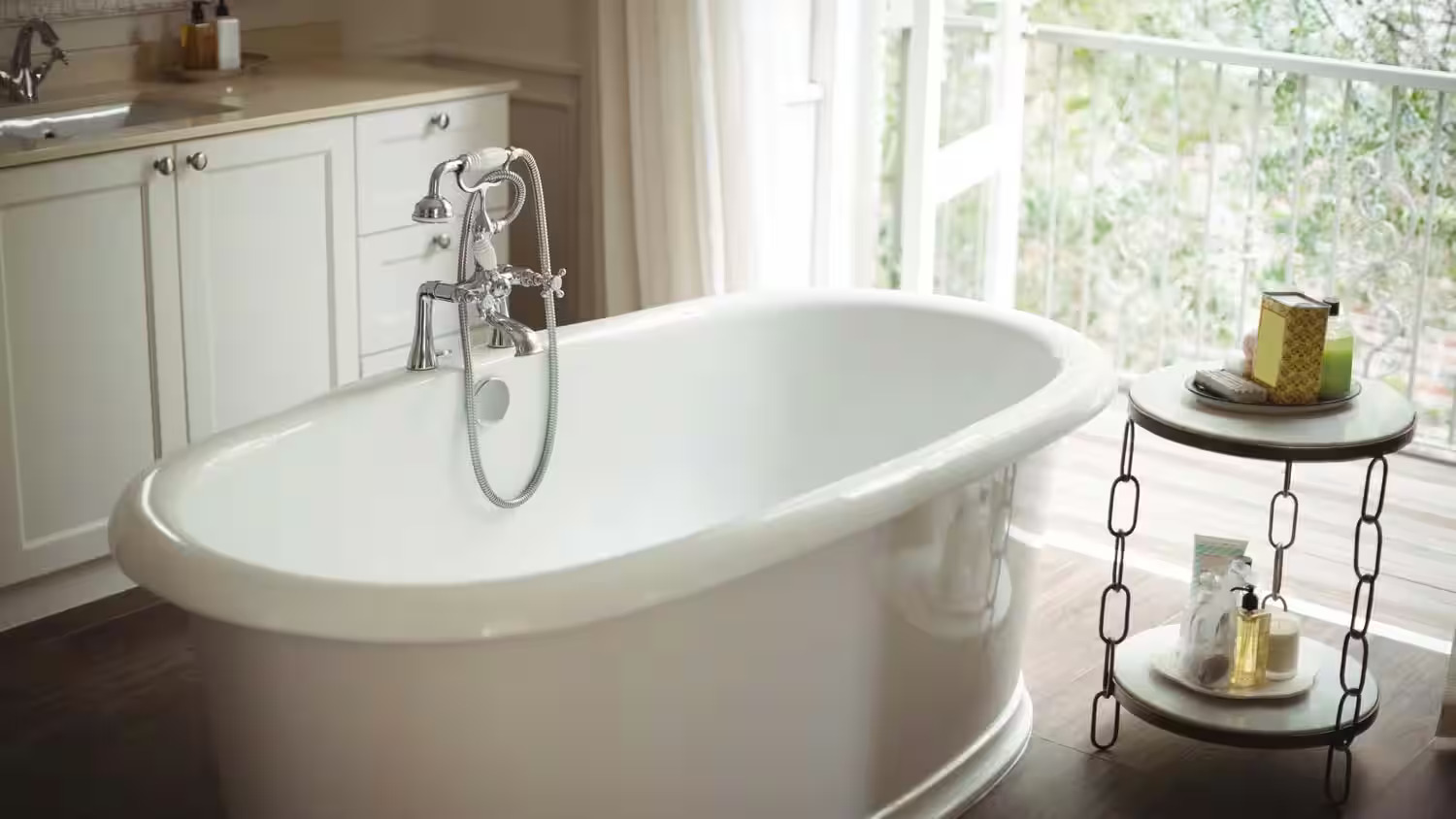

Bathroom Accessories
What Material Bathtub Is Best?
Published: February 19, 2024
Discover the best bathtub materials for your bathroom. Explore a range of bathroom accessories to enhance your bathing experience. Choose the perfect bathtub material for your needs.
(Many of the links in this article redirect to a specific reviewed product. Your purchase of these products through affiliate links helps to generate commission for Storables.com, at no extra cost. Learn more)
Acrylic Bathtubs
Acrylic bathtubs have gained immense popularity in the realm of bathroom accessories due to their numerous advantages. These bathtubs are crafted from vacuum-formed sheets of acrylic, which are reinforced with fiberglass for added durability. The seamless construction of acrylic bathtubs not only enhances their aesthetic appeal but also makes them easier to clean and maintain.
Read more: What Are The Best Roof Shingles
Advantages of Acrylic Bathtubs
-
Lightweight: Acrylic bathtubs are notably lighter than their counterparts, such as cast iron or stone resin, making them easier to install and maneuver during renovations or new construction projects.
-
Versatility: These bathtubs come in a wide array of shapes, sizes, and designs, allowing homeowners to select a model that perfectly complements their bathroom decor and meets their specific requirements.
-
Heat Retention: Acrylic is an excellent insulator, which means that these bathtubs can retain heat for a longer duration, providing a more relaxing and enjoyable bathing experience.
-
Repairable: In the event of scratches, stains, or minor damages, acrylic bathtubs can be easily repaired and refinished, restoring them to their original pristine condition.
-
Affordability: Compared to other materials, acrylic bathtubs are often more budget-friendly, making them an attractive option for individuals seeking a high-quality bathtub without breaking the bank.
Maintenance Tips for Acrylic Bathtubs
-
Gentle Cleaning: To preserve the luster and longevity of an acrylic bathtub, it is advisable to use non-abrasive, mild cleaning agents and soft cloths or sponges. Harsh chemicals and abrasive materials can cause damage to the surface.
-
Avoiding Scratches: While acrylic is durable, it is not impervious to scratches. Therefore, it is essential to use caution when placing or moving objects within the bathtub to prevent unsightly marks.
-
Regular Inspections: Periodically inspecting the bathtub for any signs of wear, such as cracks or discoloration, can help address potential issues before they escalate.
In summary, acrylic bathtubs offer a compelling combination of affordability, versatility, and durability, making them an excellent choice for homeowners seeking a practical and visually appealing bathing solution. With proper care and maintenance, an acrylic bathtub can serve as a long-lasting and enjoyable addition to any bathroom space.
Key Takeaways:
- Acrylic bathtubs offer affordability, versatility, and easy maintenance. Their lightweight construction and heat retention provide a relaxing bathing experience. With proper care, they make a practical and visually appealing addition to any bathroom.
- Stone resin bathtubs embody luxury and durability. Their exquisite aesthetics, exceptional heat retention, and customization options elevate the bathing experience. With gentle cleaning and regular inspections, they stand as a refined and enduring fixture in any home.
Fiberglass Bathtubs
Fiberglass bathtubs have long been a popular choice for homeowners seeking an affordable and lightweight bathing solution. These bathtubs are constructed from layers of fiberglass coated with gelcoat, resulting in a smooth and glossy finish. The fiberglass material offers several advantages that make it a compelling option for individuals looking to enhance their bathroom space.
Advantages of Fiberglass Bathtubs
-
Affordability: One of the primary draws of fiberglass bathtubs is their cost-effectiveness. Compared to materials like cast iron or stone resin, fiberglass bathtubs are often more budget-friendly, making them an attractive option for those working within a specific budget.
-
Lightweight Construction: Fiberglass bathtubs are notably lightweight, making them easier to handle during installation. This characteristic is particularly beneficial for renovation projects where maneuvering heavy fixtures may pose logistical challenges.
-
Versatility in Design: Fiberglass bathtubs are available in a wide range of shapes, sizes, and styles, allowing homeowners to select a model that aligns with their aesthetic preferences and spatial requirements. Whether it's a sleek, modern design or a classic, traditional look, fiberglass bathtubs offer diverse options to suit various bathroom themes.
-
Ease of Maintenance: The non-porous surface of fiberglass bathtubs makes them relatively easy to clean and maintain. Stains and dirt can be removed with mild cleaning agents and gentle scrubbing, simplifying the upkeep of the bathtub over time.
-
Heat Retention: While not as effective as materials like acrylic, fiberglass does offer reasonable heat retention properties, allowing for a comfortable bathing experience.
Read more: What Is The Best Material For A Flat Roof
Maintenance Tips for Fiberglass Bathtubs
-
Regular Cleaning: To preserve the glossy finish of a fiberglass bathtub, regular cleaning with non-abrasive cleaners and soft cloths is recommended. This helps prevent the buildup of grime and maintains the bathtub's visual appeal.
-
Avoiding Abrasive Materials: Harsh cleaning tools and abrasive materials should be avoided, as they can cause scratches and damage the smooth surface of the bathtub.
-
Prompt Repairs: In the event of any cracks or damages, prompt repairs are essential to prevent further deterioration. Fiberglass repair kits are available for addressing minor damages and maintaining the bathtub's structural integrity.
In summary, fiberglass bathtubs offer a cost-effective and versatile bathing solution for homeowners. Their lightweight construction, ease of maintenance, and diverse design options make them a practical choice for those seeking a functional and visually appealing bathtub. With proper care and attention, a fiberglass bathtub can serve as a durable and enjoyable fixture in any bathroom setting.
Cast Iron Bathtubs
Cast iron bathtubs exude an air of timeless elegance and unparalleled durability, making them a coveted choice for discerning homeowners. Crafted from molten iron that is poured into a mold, these bathtubs boast a robust and solid construction that sets them apart from other materials. The allure of cast iron bathtubs lies in their ability to seamlessly blend classic aesthetics with functional superiority, creating a bathing experience that transcends mere utility.
Advantages of Cast Iron Bathtubs
-
Exceptional Durability: The inherent strength of cast iron makes these bathtubs exceptionally durable, capable of withstanding the test of time and daily use without succumbing to wear and tear. This longevity ensures that a cast iron bathtub can serve as a steadfast fixture in a home for generations, making it a worthwhile investment.
-
Heat Retention: One of the standout features of cast iron bathtubs is their exceptional heat retention properties. Once filled with warm water, the bathtub retains heat for an extended period, allowing bathers to luxuriate in a soothing and relaxing bathing experience.
-
Timeless Aesthetic Appeal: The classic, elegant appearance of cast iron bathtubs adds a touch of sophistication to any bathroom space. Their smooth, glossy finish and graceful lines evoke a sense of refinement, creating a focal point that elevates the overall ambiance of the room.
-
Stability and Sturdiness: The substantial weight of cast iron bathtubs contributes to their stability, minimizing any potential movement or shifting during use. This sturdiness not only enhances safety but also imbues a sense of solidity and permanence to the bathtub.
-
Sound Insulation: Cast iron's dense composition provides natural sound insulation, reducing the noise generated during bathing and creating a more tranquil environment within the bathroom.
Maintenance Tips for Cast Iron Bathtubs
-
Regular Cleaning: To maintain the lustrous finish of a cast iron bathtub, regular cleaning with mild, non-abrasive cleaners is essential. This helps prevent the buildup of grime and preserves the bathtub's visual appeal.
-
Avoiding Abrasive Materials: Harsh cleaning tools and abrasive materials should be avoided, as they can cause scratches and damage the smooth surface of the bathtub.
-
Periodic Refinishing: Over time, the enamel coating of a cast iron bathtub may require refinishing to address any signs of wear or minor damages. This process restores the bathtub's original sheen and ensures its continued resilience.
In essence, cast iron bathtubs epitomize the perfect amalgamation of enduring strength, timeless elegance, and functional excellence. Their ability to withstand the rigors of daily use while exuding an aura of sophistication makes them a coveted choice for homeowners seeking a bathing fixture that transcends mere functionality. With proper care and maintenance, a cast iron bathtub can stand as a testament to enduring quality and refined luxury within any home.
Read more: What Brand Of Bathtub Is Best?
Porcelain-Enameled Steel Bathtubs
Porcelain-enameled steel bathtubs offer a compelling blend of affordability, durability, and visual appeal, making them a popular choice for homeowners seeking a practical and stylish bathing fixture. These bathtubs are crafted from a steel base coated with a layer of porcelain enamel, resulting in a smooth, glossy finish that enhances the overall aesthetic of the bathroom space.
Advantages of Porcelain-Enameled Steel Bathtubs
-
Affordability: One of the primary advantages of porcelain-enameled steel bathtubs is their cost-effectiveness. Compared to materials such as cast iron or stone resin, these bathtubs are often more budget-friendly, making them an attractive option for individuals looking to enhance their bathroom without exceeding their budget.
-
Lightweight Construction: Porcelain-enameled steel bathtubs are notably lightweight, making them easier to handle and install. This characteristic is particularly beneficial for renovation projects or situations where maneuvering heavy fixtures may pose logistical challenges.
-
Resistance to Stains and Scratches: The porcelain enamel coating provides a durable and non-porous surface that resists stains and scratches, contributing to the longevity and visual appeal of the bathtub. This makes maintenance and cleaning relatively straightforward, ensuring that the bathtub retains its pristine appearance over time.
-
Heat Retention: While not as effective as materials like cast iron, porcelain-enameled steel bathtubs offer reasonable heat retention properties, allowing for a comfortable bathing experience.
-
Versatile Design Options: These bathtubs are available in a variety of shapes, sizes, and styles, offering homeowners the flexibility to select a model that aligns with their aesthetic preferences and spatial requirements. Whether it's a sleek, modern design or a classic, traditional look, porcelain-enameled steel bathtubs cater to diverse design preferences.
Maintenance Tips for Porcelain-Enameled Steel Bathtubs
-
Gentle Cleaning: To preserve the luster and longevity of a porcelain-enameled steel bathtub, it is advisable to use non-abrasive, mild cleaning agents and soft cloths or sponges. Harsh chemicals and abrasive materials can cause damage to the enamel surface.
-
Avoiding Impact: While durable, the enamel coating can chip or crack if subjected to heavy impact. Care should be taken to prevent sharp or heavy objects from striking the surface of the bathtub.
-
Regular Inspections: Periodically inspecting the bathtub for any signs of wear, such as chips or discoloration, can help address potential issues before they escalate, ensuring the bathtub's continued durability.
In summary, porcelain-enameled steel bathtubs offer a compelling combination of affordability, durability, and versatile design options, making them a practical and visually appealing choice for homeowners. With proper care and maintenance, a porcelain-enameled steel bathtub can serve as a long-lasting and enjoyable addition to any bathroom space.
Stone Resin Bathtubs
Stone resin bathtubs represent the epitome of luxury and sophistication in the realm of bathroom accessories. Crafted from a composite material consisting of crushed stone, typically marble or limestone, mixed with a high-quality resin, these bathtubs exude an aura of opulence and refinement that elevates the bathing experience to new heights. The fusion of natural stone particles and resin results in a durable, non-porous, and visually stunning bathtub that seamlessly marries form and function.
Read more: What Type Of Bathtub Is Best
Advantages of Stone Resin Bathtubs
-
Exquisite Aesthetics: The natural stone particles embedded within the resin impart a luxurious, organic appearance to stone resin bathtubs. The smooth, polished surface showcases the intricate patterns and textures of the stone, creating a visually captivating centerpiece for any bathroom.
-
Exceptional Durability: Stone resin bathtubs are renowned for their robust construction and resistance to wear and tear. The composite material offers superior strength and longevity, ensuring that the bathtub maintains its pristine condition even after years of use.
-
Heat Retention: One of the standout features of stone resin bathtubs is their exceptional heat retention properties. The composite material retains warmth, allowing bathers to indulge in a soothing and indulgent bathing experience.
-
Customization Options: These bathtubs are available in a diverse range of shapes, sizes, and designs, offering homeowners the opportunity to personalize their bathing space according to their preferences and spatial constraints. Whether it's a freestanding, oval-shaped bathtub or a sleek, rectangular design, stone resin bathtubs cater to a myriad of aesthetic preferences.
-
Easy Maintenance: The non-porous nature of stone resin bathtubs makes them resistant to stains and easy to clean. Regular maintenance involves simple cleaning with mild, non-abrasive cleaners, ensuring that the bathtub retains its allure and functionality over time.
Maintenance Tips for Stone Resin Bathtubs
-
Gentle Cleaning: To preserve the luster and longevity of a stone resin bathtub, it is advisable to use non-abrasive, mild cleaning agents and soft cloths or sponges. Harsh chemicals and abrasive materials can cause damage to the surface.
-
Avoiding Impact: While durable, the composite material can be susceptible to damage from heavy impact. Care should be taken to prevent sharp or heavy objects from striking the surface of the bathtub.
-
Regular Inspections: Periodically inspecting the bathtub for any signs of wear, such as chips or discoloration, can help address potential issues before they escalate, ensuring the bathtub's continued durability.
In essence, stone resin bathtubs embody the pinnacle of elegance, durability, and functionality. Their ability to seamlessly integrate luxurious aesthetics with practicality makes them a coveted choice for homeowners seeking a bathing fixture that transcends conventional standards. With proper care and maintenance, a stone resin bathtub stands as a testament to enduring quality and refined luxury within any home.
Frequently Asked Questions about What Material Bathtub Is Best?
Was this page helpful?
At Storables.com, we guarantee accurate and reliable information. Our content, validated by Expert Board Contributors, is crafted following stringent Editorial Policies. We're committed to providing you with well-researched, expert-backed insights for all your informational needs.


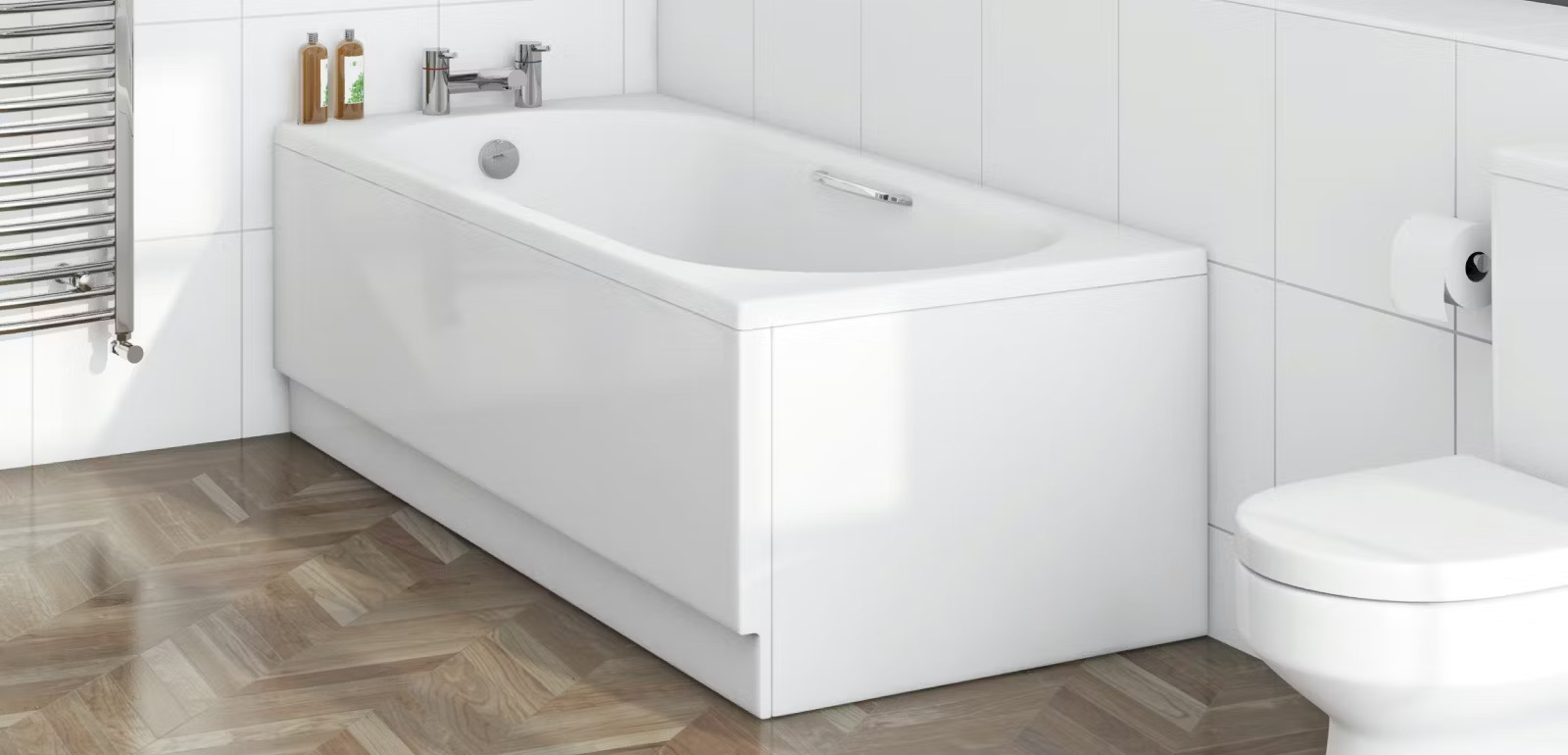
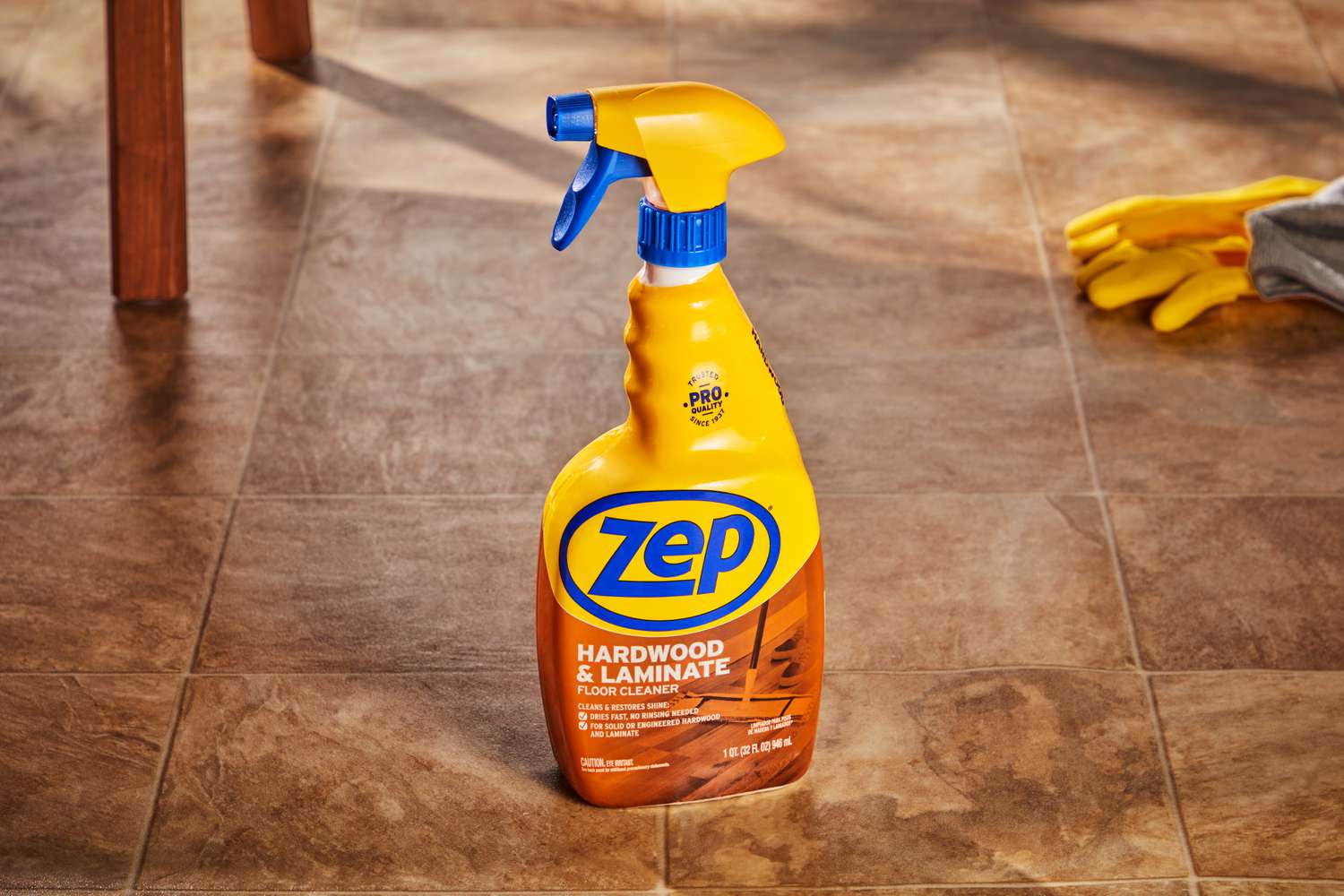
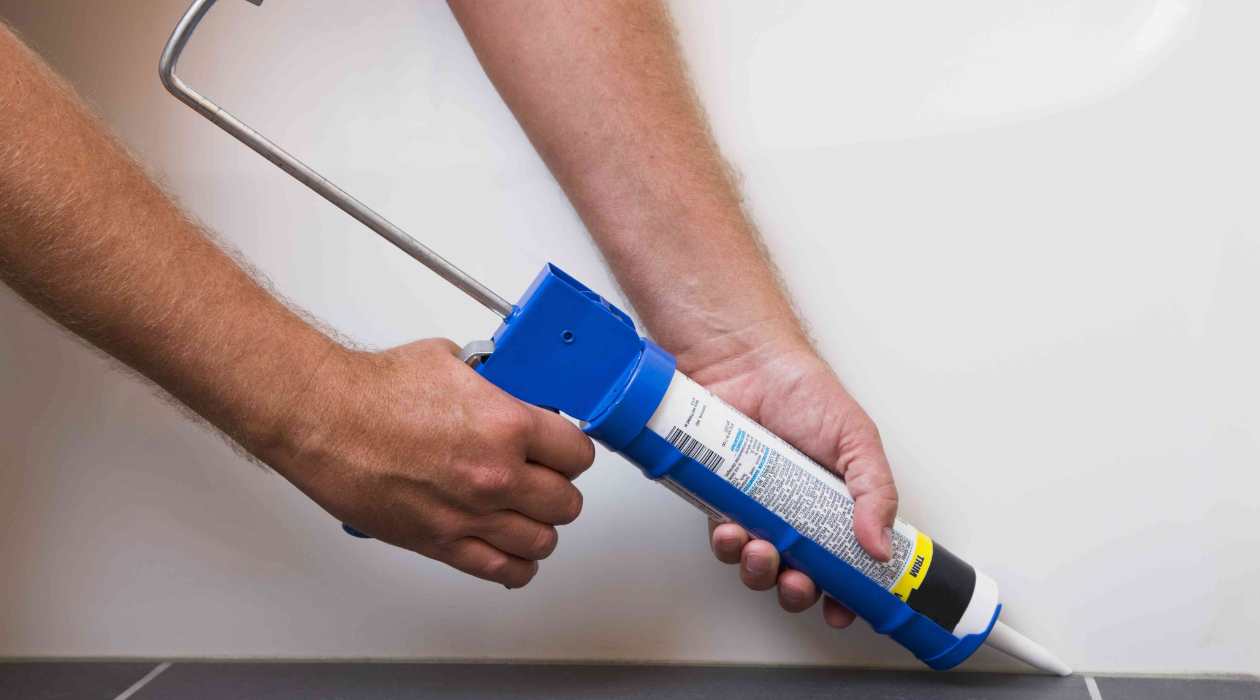
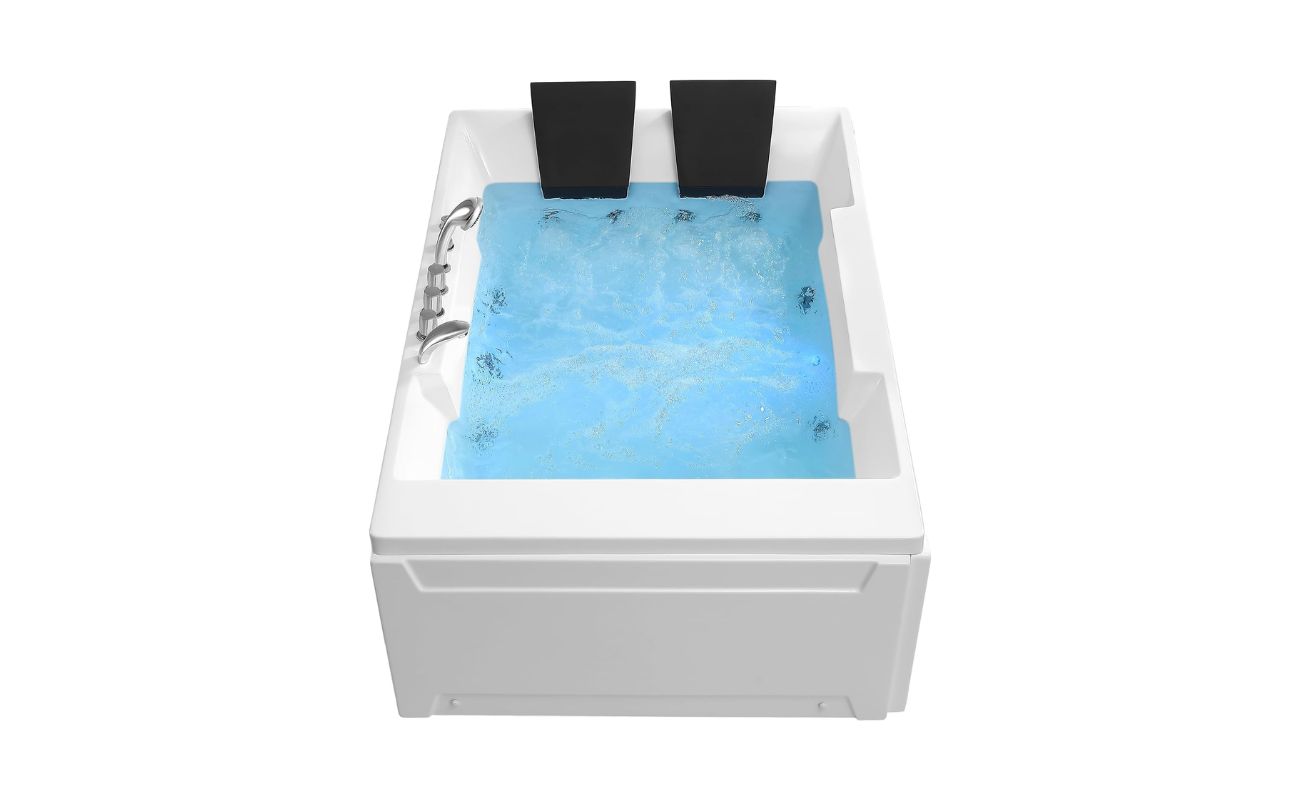
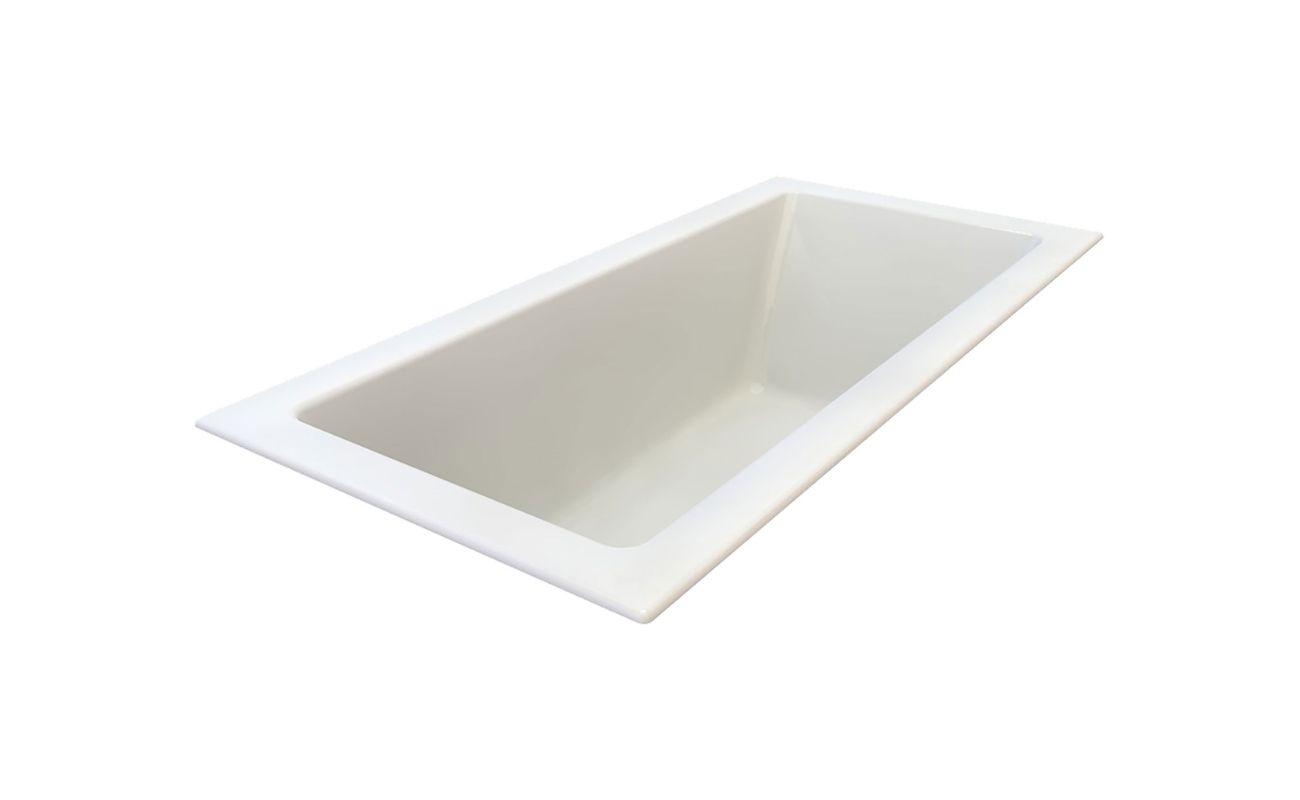
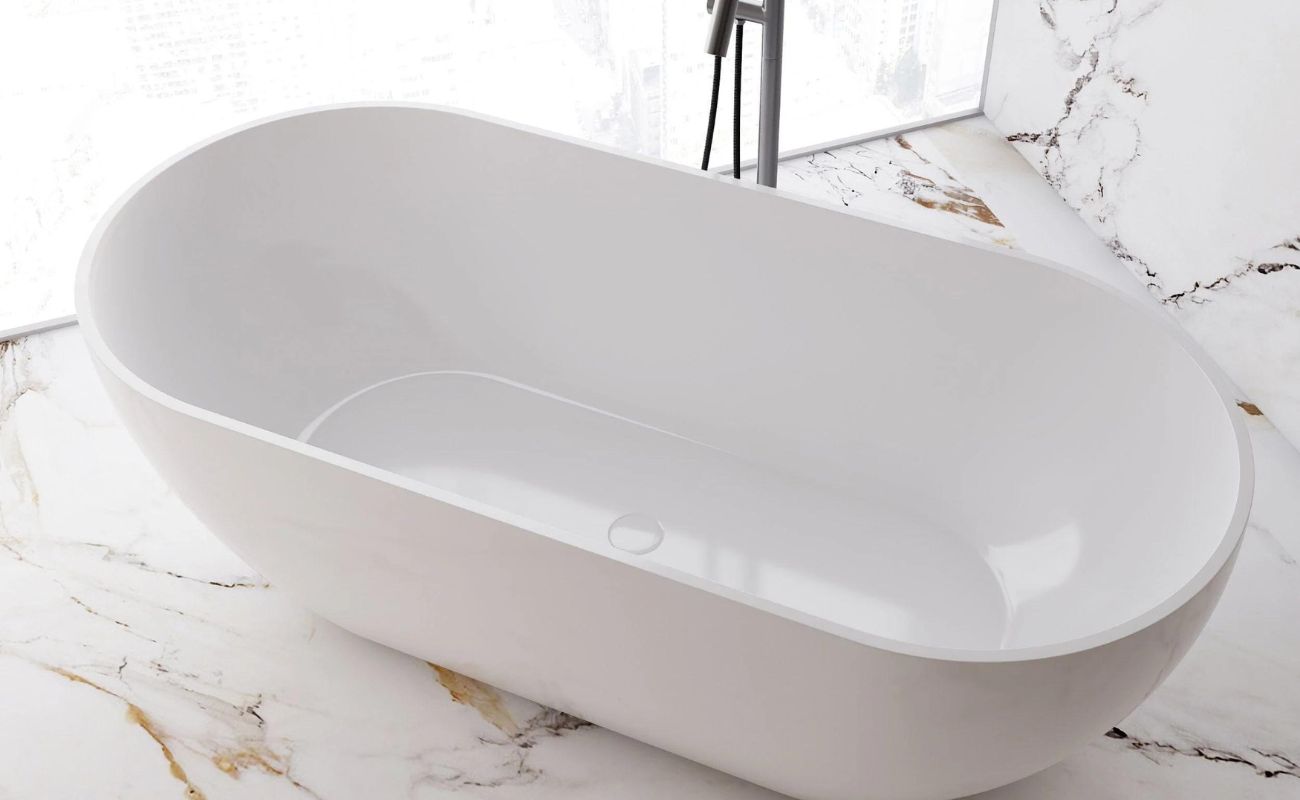
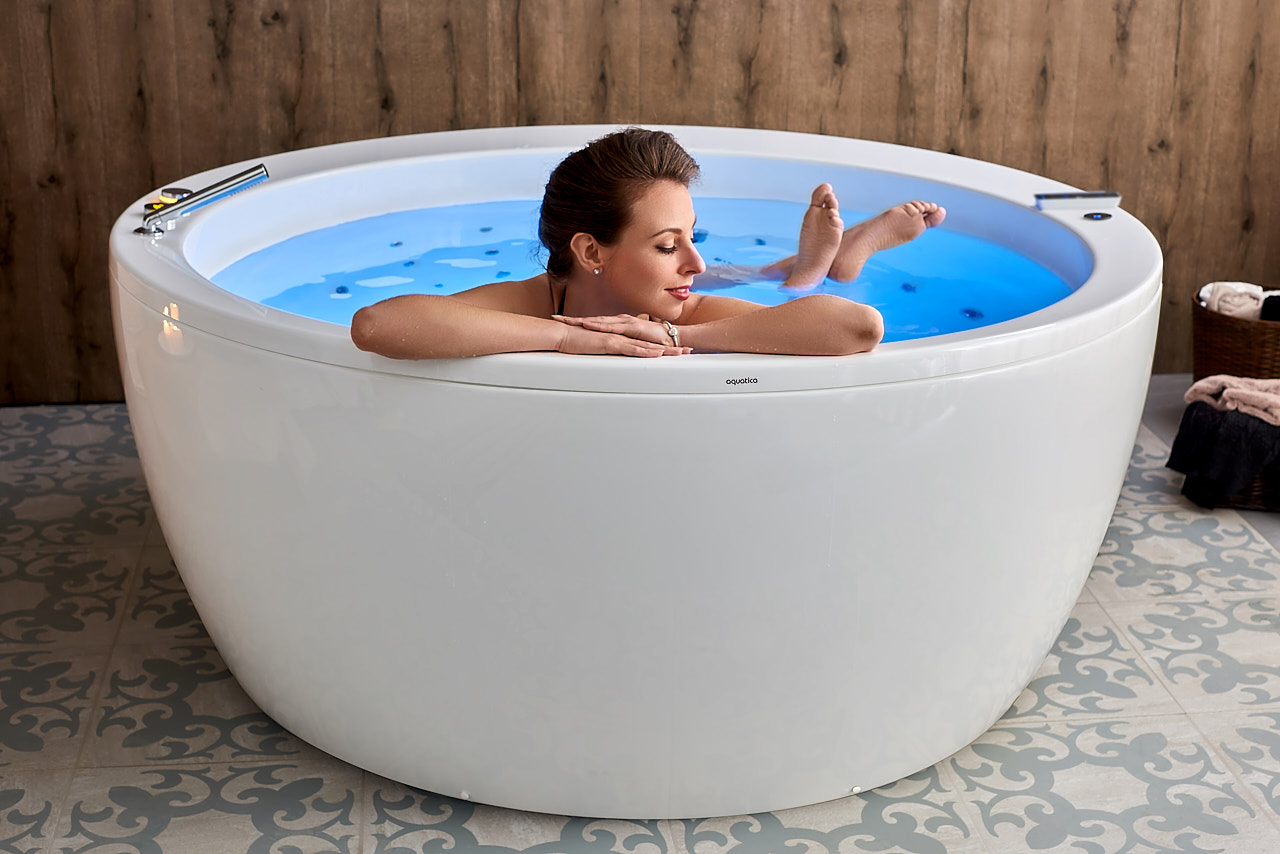
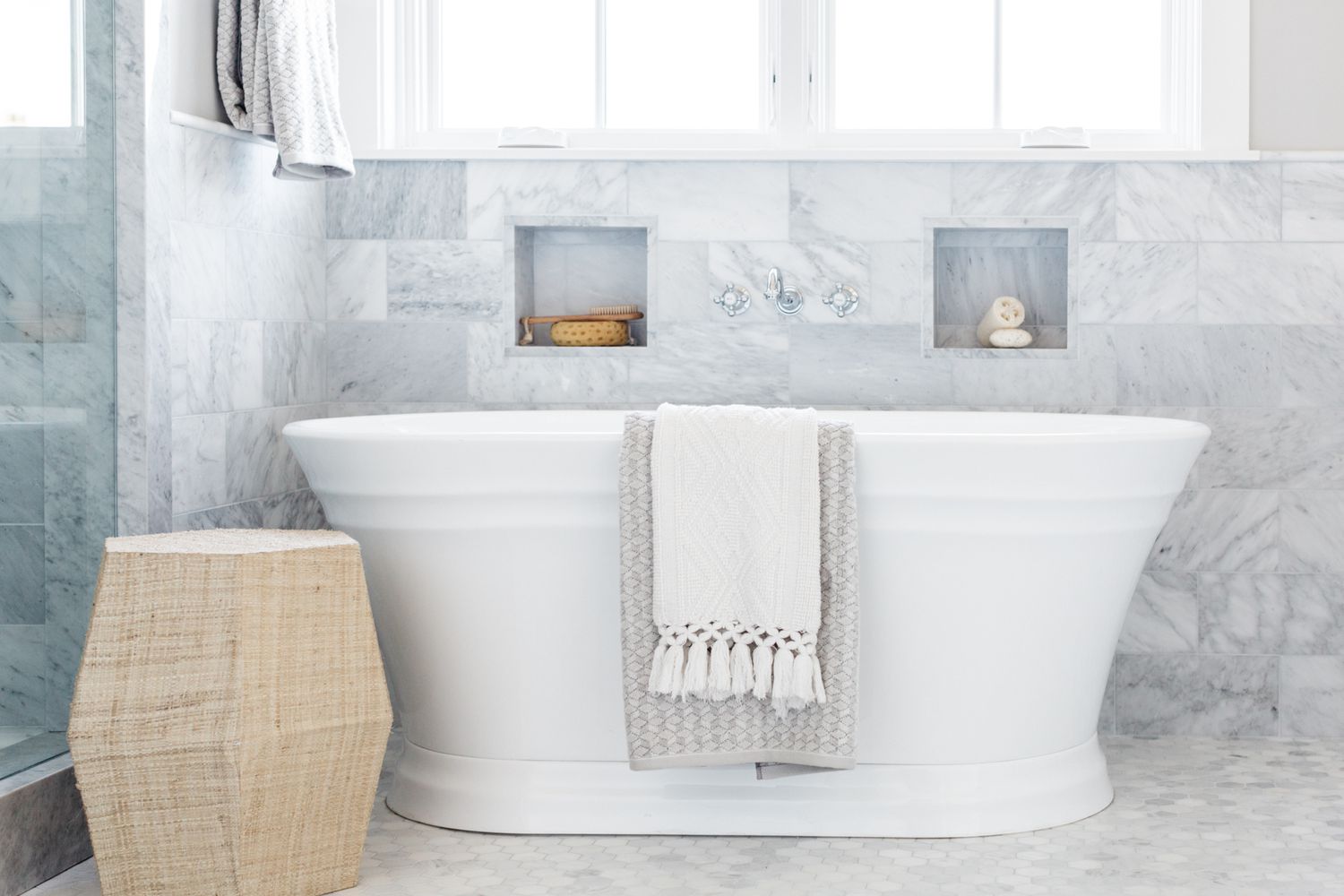



0 thoughts on “What Material Bathtub Is Best?”